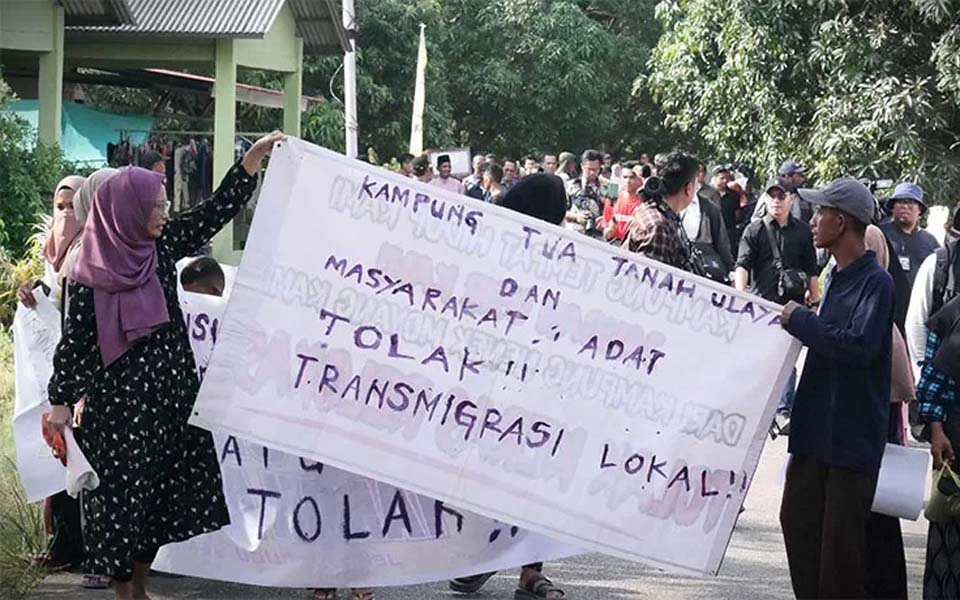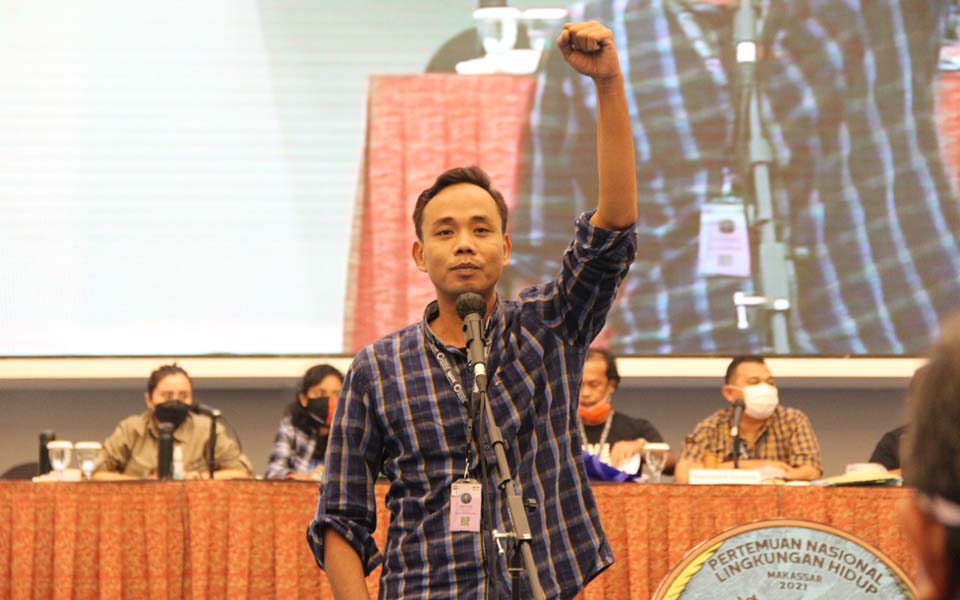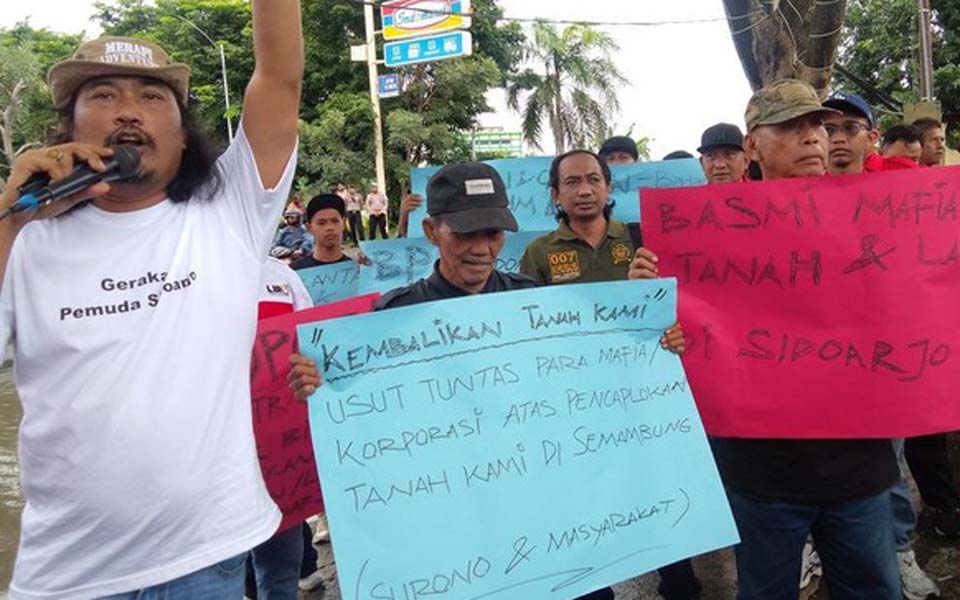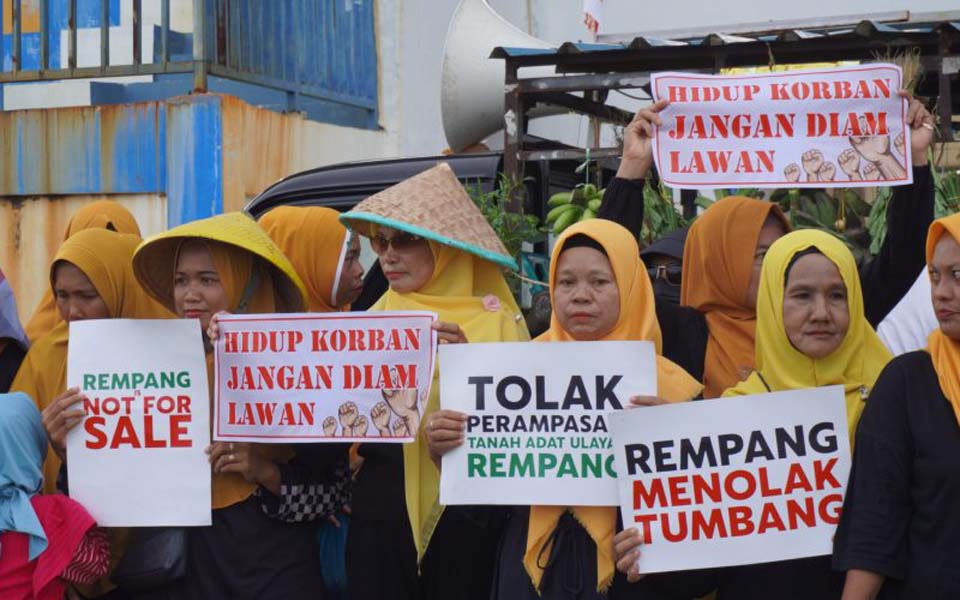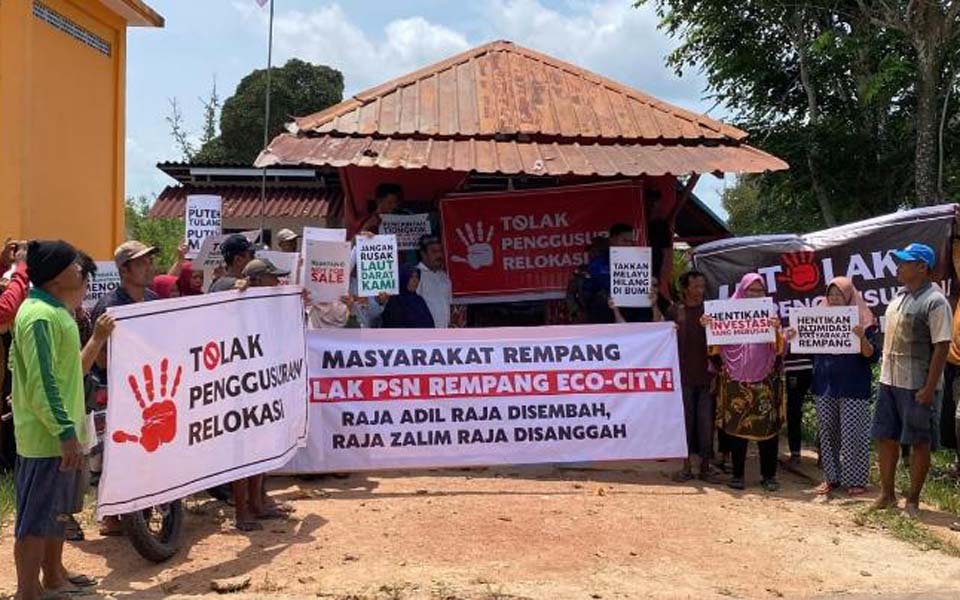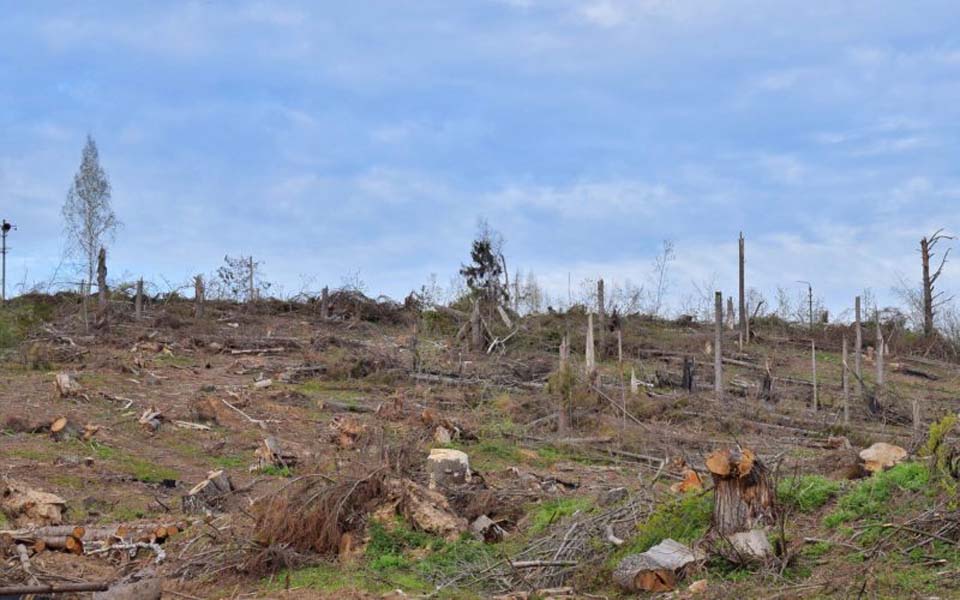Jakarta – The National Agrarian Reform Committee (KNPA) has recorded at least 35 cases of agrarian conflicts between March and September 2020 or since the Covid-19 pandemic started in Indonesia. Based on the KNPA’s records, these conflicts range from land grabs, forced evictions, intimation to arrests.
KNPA spokesperson Dewi Kartika said that they deplore what has been happening, especially since the Covid-19 pandemic began, when farmers have been endeavoring to assist the government in guaranteeing food availability.
Despite this, she said, the reality is that the pandemic has not stopped the government, police and corporations from taking actions which trigger agrarian conflicts.
“There has been a series of 35 agrarian conflict explosions, which actually signify a situation which is counterproductive and [conflicts] with the invitation and narrative from the president who asked farmers to work together to ensure there’s no food crisis”, she said during a virtual press conference on Wednesday September 23.
Furthermore, Kartika explained that so far the process of resolving these agrarian conflicts has generally stalled. Moreover, she said, these stalled resolutions have occurred over the last six months.
“So it’s not just over the last year since farmers commemorated National Farmers Day in 2019. Moreover there has been a divergence done in the name of agrarian reform. Our system of agriculture is being pushed into becoming very [neo-]liberal”, she said accusingly.
According to Kartika, land conflicts and the threat of neoliberal policies, will further endanger farmers if the Draft Omnibus Law on Job Creation – which is currently being deliberated – is enacted into law by the House of Representatives (DPR) and the government.
Kartika said that the Omnibus Law will highjack and destroy the Basic Agrarian Law.
“Out of the 79 laws which the Omnibus Law [will effect], there are more than 15 laws related to land affairs and agrarian resources such as [the laws on] plantations and mining, and there are several dangerous aspects which will deviate from the spirit of the Basic Agrarian Law which we will celebrate tomorrow”, she said.
Based on this, she says that tomorrow, on Thursday, or exactly 60 years since the Basic Agrarian Law was passed, the KNPA and other social organisations will hold protest actions at the DPR and opposite the Presidential Palace in Central Jakarta.
Similar actions, said Kartika, will also be held simultaneously in 60 other regions around the country.
“So we farmers do of course feel that we must ensure the that the Draft Omnibus Law fails to be passed, be withdrawn and returned to the government, or that the government withdraw the draft”, she said.
The Draft Omnibus Law on Job Creation is currently being deliberated by the DPR and the government. Coordinating Minister for the Economy, Airlangga Hartarto, said recently that 90 percent of the draft law has been done and that the deliberations are still being conducted intensively between the government and all stakeholders.
“We are still deliberating it and 90 percent has been deliberated”, said Hartarto during a Virtual Informal Discussion 100 on the economy broadcast by CNBC Indonesia on Tuesday September 15. (yoa/kid)
[Translated by James Balowski. The original title of the article was “Konflik Tanah Meletus di Pandemi, Petani Demo Istana Besok”.]






